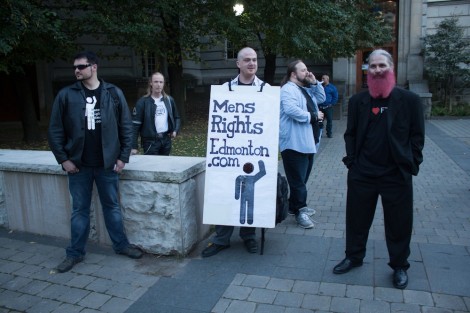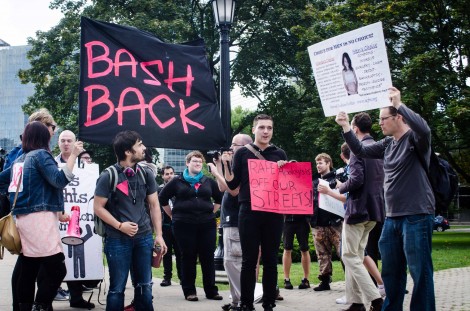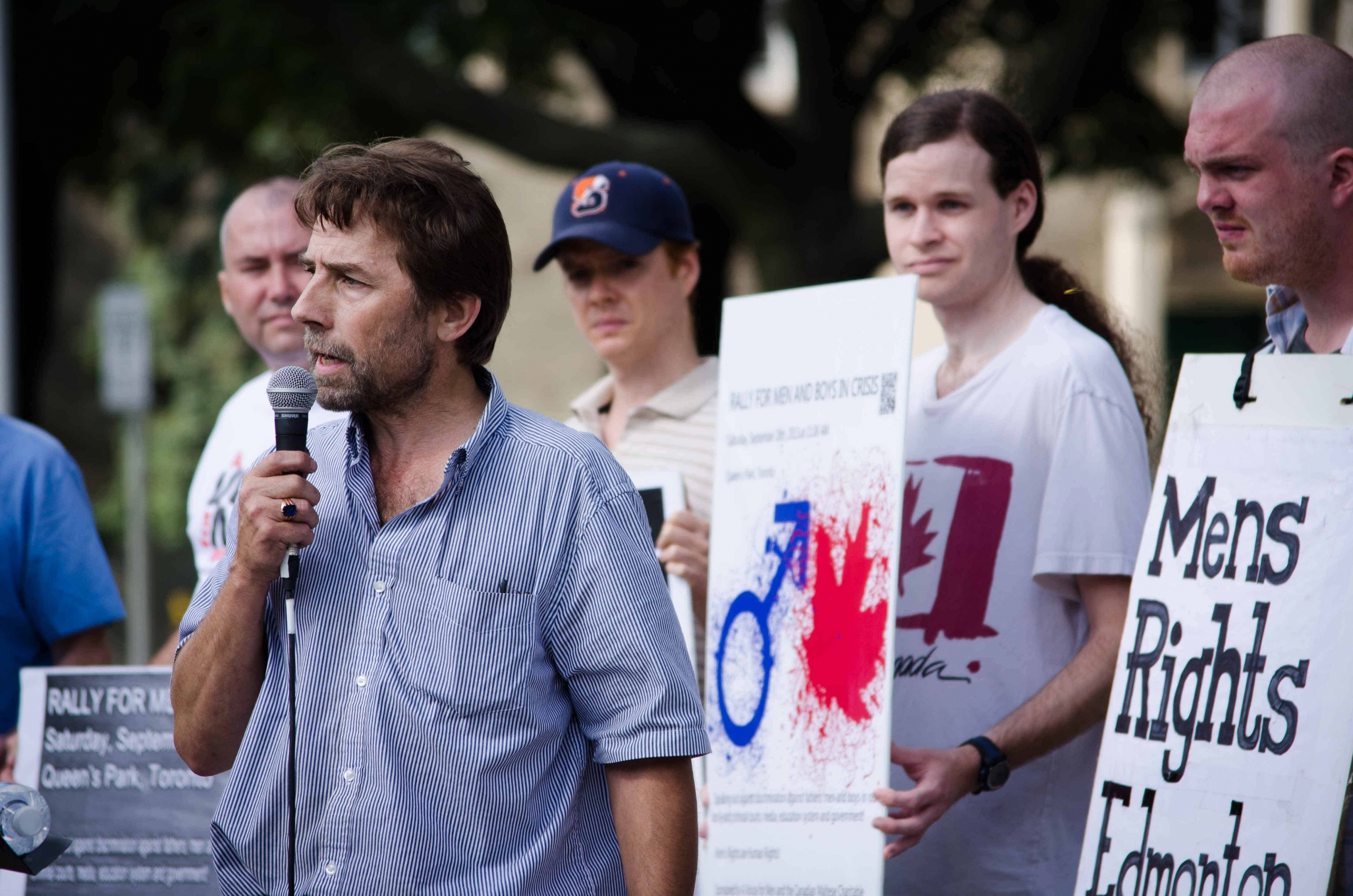On September 27, the University of Toronto’s Men’s Issues Awareness Society (UTMIA) and the Canadian Association for Equality (CAFE) hosted an event called “Why We Need Campus Men’s Centres.” Dr. Miles Groth, who published a book called Engaging College Men: Discovering What Works, was the keynote speaker for the event.
Groth’s lecture focused on the difficulties facing young men in today’s universitys and professional programs, as well as his experience hosting a men’s centre at Wagner College. He believes that a men’s centre has become necessary for men to flourish in the “noxious sociocultural environment” that is present in today’s universities.
At the event, CAFE announced that they had reached $35,000 out of their $50,000 goal to establish a Canadian Centre for Men and Families in Toronto. The group hoped to see the arrival of not only men’s centres in universities, but also support centres for men in the general community. Several prominent members of the Men’s Rights Movement visited the lecture, including Paul Elam from A Voice for Men (AVfM) and Karen Straughan from A Girl Writes What. Nick Reading from Men’s Rights Edmonton was also at the event. They came to give CAFE their support and to promote a follow-up rally the next day.

Attendees wait to enter the lecture hall for Dr. Miles Groth’s talk. CAROLYN LEVETT/THE VARSITY
A lecture on campus by Dr. Warren Farrell last November was met with almost 100 protesters, some of whom barricaded doors and shouted at attendees. The incident prompted a highly publicized debate between the University of Toronto Students’ Union (UTSU) and senior administrators over the acceptable limits of free speech on campus.
In the hour prior to the event, there was a sense of unease. “I expected protesters to be here like last year,” said Ethan Hu, a second-year student. “I was a bit nervous that I’d be yelled at.” After the event, Hu said that he was “pleasantly surprised” that the event was held without difficulties. No protesters were ultimately present.
U of T administration charged UTMIA a mandatory fee of $964 to cover the security costs in the event of another large-scale protest. Almost a half-dozen police officers were stationed at the entrance of the lecture hall. Organizers managed to pay the fee using donations from CAFE supporters, but sources say AVfM is considering legal action to get the fee refunded.
“I can’t believe [CAFE] had to be charged,” said Jonathan Turner, a “curious” observer who wanted to know more about men’s issues. “It should be the protesters who get stuck with the bill.” He was not aware that this was a large, contentious issue in the past because of the lecture hall’s “peaceful and open” atmosphere.

Members of Bash Back, a radical anarchist queer organization, assembled to counter the Rally for Men and Boys in Crisis. MICHAEL CHAHLEY/THE VARSITY
A follow-up event called A Rally for Men and Boys in Crisis occurred the next day at Queen’s Park. Hosted by AVfM and other partners concerned with men’s rights, the event was an opportunity for supporters to share their stories. Many of the guests from Groth’s lecture returned for the rally and were also given a chance to speak. Half an hour into the rally, a group of around 20 protesters from Bash Back!, a radical anarchist queer organization, arrived in front of Queen’s Park. The group was not affiliated with the university. The protesters attempted to march up to the rally attendees, but were quickly stopped by three police officers. A clear boundary was created between Bash Back! and the activists.
The group proceeded to make a non-violent protest against the rally. They chanted that the supporters were sexist and homophobic, and waved signs that read “Listen to Women” and “Sexism is not a Right.” In the middle of their protest, a few members of the group climbed the Ontario Veterans Memorial and shouted slogans such as “MRA, go away!” They were eventually convinced by police to step down and return to their previous location.
Members of Bash Back! declined to comment.
“It’s so critical that we don’t shut up,” said Paul Elam, using the microphone to address the protesters. “If I shut up, I’m going to contribute to the suicide of men and boys. If I don’t want to talk about these problems, who’s going to?” Other speakers talked over the chants to give their personal stories about the injustices that men still face today.
A few students were more open about the presence of the demonstrators. “They are not so bad,” said Dennis Najm, a student from York University. “They are a bit rude, but at least they are obeying the cops. At least they are not doing anything illegal.” Najm admitted that he was curious to hear from different sides of the issue, but was disappointed that only a “fringe radical group” came to protest.
“I’m glad to see that these groups are still around,” said John MacTaggart, a Life Sciences student at U of T. He was afraid that students had “scared these groups off campus” after last year’s events. “What sort of university are we if we can’t handle a bit of noisy discourse?”


